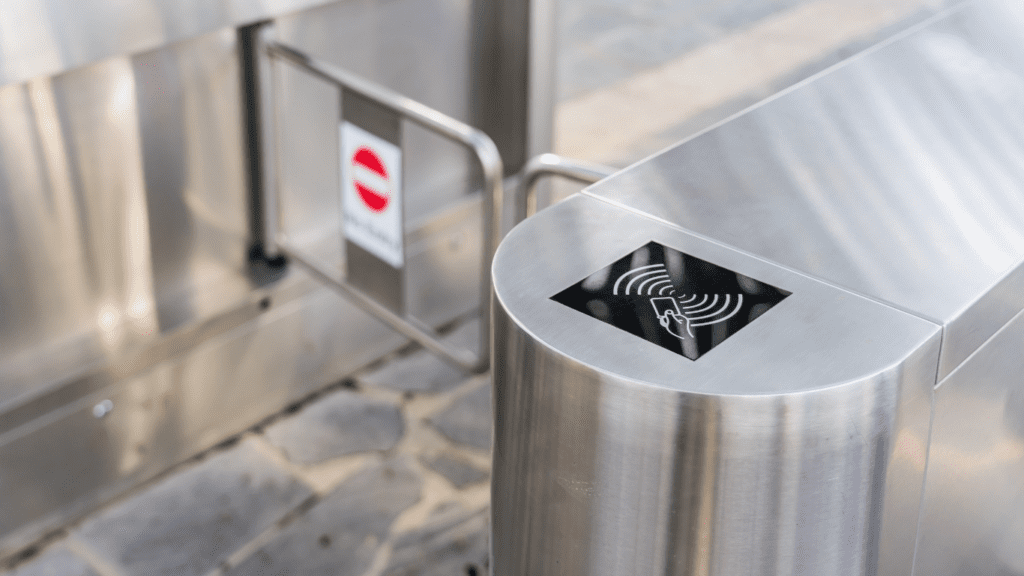Waiting around when you can’t do what you need to do
There are millions of field engineers all over the world working at this exact moment in time. They are in different countries, in different industries, and working under very different conditions. Some of them may have multiple calls to customers in one day, some may be on site with one client over a period of weeks. The amount of travel will vary too from local to national to international. Some of the visits will be in response to an urgent breakdown, some will have been planned for months. All of them will sometimes experience waiting around on site.


One thing which all field engineers need to manage is waiting to be able to start working. These are some of the many reasons field engineers experience before they can start work. Engineers wait to:
Access the building.
Gain security clearance for the specific area.
Have access approved as the visit was not expected.
See the person or people who can give needed information, logins, detail of what went wrong etc.
Then they may have to wait for:
Employees to clear the room or space.
Keys, passwords, manuals or access cards.
Equipment to be switched off, come up to full power or to restart.
Software to load.
While the engineer is waiting around on site, the minutes and hours are passing. Delays can happen even with the best planned and most organised visit. A lot of engineers find this a difficult part of their job as often it is unclear how long the waiting time will be. In most cases, the engineers need to stay on site and wait, and therefore can’t relax and need to look occupied.


What can you do on site during the waiting time?
While you are waiting, there are ways to fill the time productively and to lower your level of frustration and boredom.
How you fill the time needs to start with what is essential.
Essential job related.
Essential non-job related (personal).
Then if the wait is longer, you can fill the time with what is non-essential.
Non-essential job related.
Non-essential non-job related (personal).


Essential while waiting around on site
If you fill your time with what is essential you will feel more organised when you can start or resume working. You will also give the appearance of ‘being busy’ and working to anyone watching. Doing something will make the time pass faster as well.
Essential job related
Contact your office, the next call or calls and update them on the situation.
Check your notes, equipment and tool kit.
Read any manuals or documentation again.
Mentally rehearse what you will do when you can start work.
Check with your organisation. Is there a meeting going on which you were not able to attend but can now join remotely?
Is there anything else you can do whilst on site? For example, could you:
Answer questions
Check the preventative maintenance schedules.
Gather information which will help other engineers in the future.
Solve a minor issue.
Meet new employees and introduce yourself.
Essential non-job related (personal)
Look after yourself so that you are refreshed and ready when you can start to work. So, have a drink of water, eat something if you are due a meal break and take a walk for a few minutes to get some air.
If the situation is stressful because of an urgent issue, then spend a few minutes and relax or meditate and message friends or family.
Non-essential while waiting around on site
Moving to non-essential things to fill the time will depend on how long you are waiting. You may not wish to switch context too much. In that case stay within your industry. However, if you are happy to multitask in your thinking, then switch to the non-essential. Sometimes something completely different from the work you do can be very effective at refreshing your mind. Whatever it is you do, bear in mind that you need to be able to leave it quickly and start on the job.


Non-essential job related
Read about your customer:
brochures in reception
website online
news stories online.
Talk to other members of staff if they are available and gain information and data.
Plan your week or month in terms of workload and travel. Is there anything you can book now, or an email you can send to organise or gain information in advance.
Get up to date with any reports or logs.
Do some housekeeping:
clear your inbox
file information
respond to all messages
delete any out-of-date manuals or duplicates of material.
Read through any backlog of technical material.
Read generally about your industry or sector. It is always worth having podcasts or reports downloaded so that you can access them easily.
Do some networking:
Within your organisation
Within your industry or within field engineering
Take some time to think about whether delays like this could be prevented in future.
Non-essential non-job related (personal)
Listen or read something which is not directly job related but of interest to you perhaps for your future plans.
Start to learn a language online which may be the beginning of a new habit. Is there a language that you have always wanted to speak. Or is there somewhere you are going where to speak some of the language would be useful. Do you sometimes work on site with a customer where although the business language of the organisation is, for example English, the operators speak a different language.
Work on your short term, medium term, and long-term goals.
Research courses or study options.
Conclusion
Waiting time is part of being a field engineer. How you fill the time will always depend on the situation itself and whether you have access to the internet.
What do you do when you have to wait? Any suggestions?
Further reading
Handling pressure as a field engineer
Building trust as a Field Engineer and within a Field Engineering Team – a practical toolkit


Responses